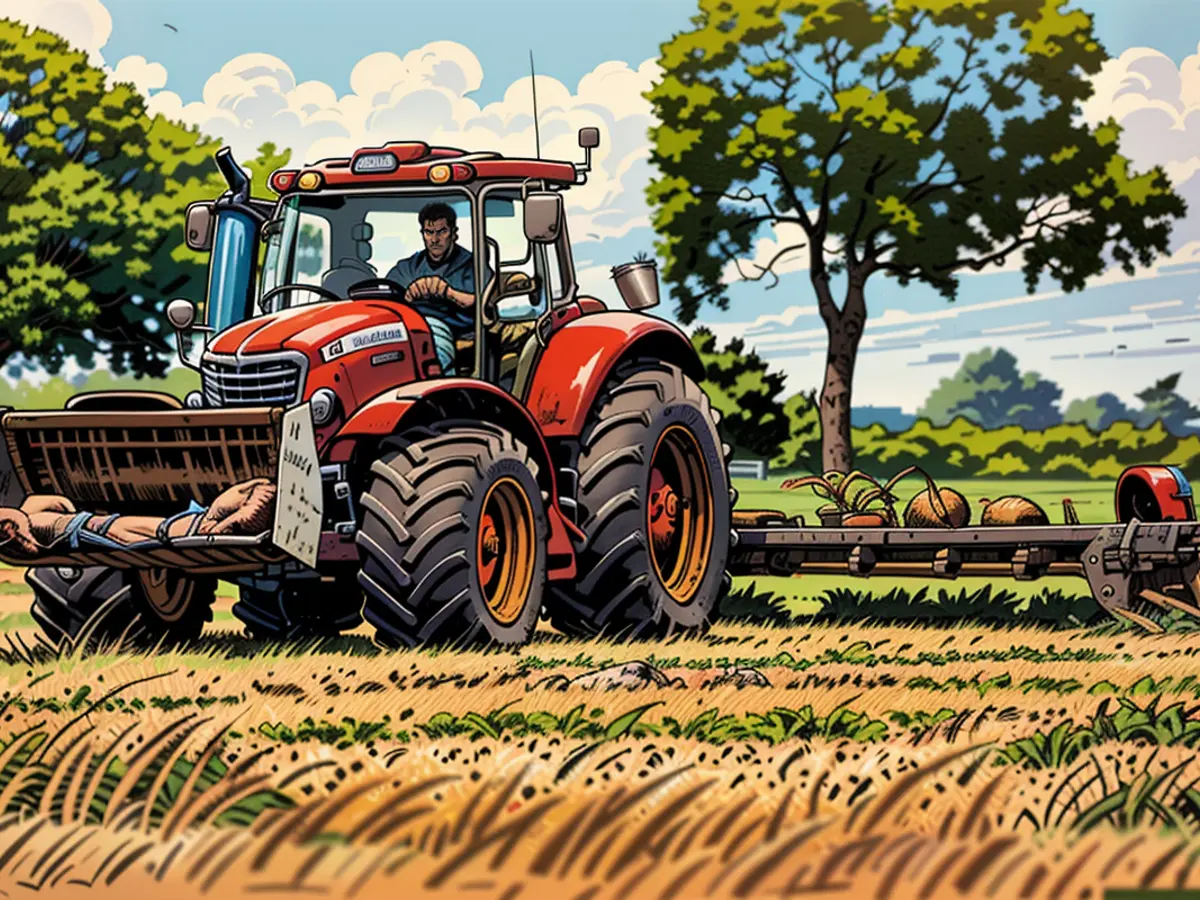- Northside agriculturalists are experiencing crop losses due to unfavorable weather conditions.
The harvest in Schleswig-Holstein also falls short this year, continuing a subpar year from 2023. Many farmers are displeased with the yields and quality, as pointed out by Agriculture Minister Werner Schwarz (CDU), the President of the Chamber of Agriculture, Ute Volquardsen, and the President of the Farmers' Association, Klaus-Peter Lucht, during the preliminary harvest evaluation in Ottendorf near Kiel.
Preliminary statistics from the Statistical Office North (not all harvests are in yet) indicate that winter wheat yields will be approximately 7.95 tonnes per hectare, about 4% less than the previous year and 9% below the long-term average. Winter barley yields are predicted to be around 8.43 tonnes, slightly above the long-term average.
Winter rapeseed yields are abysmal at 3.28 tonnes, significantly lower than the long-term average of 3.83 tonnes. Summer cereals like summer oats and summer wheat are expected to have higher yields this year, with an estimated 284,500 tonnes, a 141% increase. Many farmers were unable to plant winter cereals as planned due to wet fields in the fall and switched to summer cereals.
The maize harvest is yet to come. The maize crops are developing differently depending on location and planting time. The planted area is roughly at the same level as the previous year, which is around 159,400 hectares. In contrast to expectations, grass had a promising year. The wet weather boosted growth, allowing for sufficient cuts to be made.
Low market prices are putting pressure on farmers. Volquardsen mentioned current low market prices, which, combined with lower yields, is putting a strain on operations. A lower harvest in Germany does not result in higher prices due to the global market. For instance, the USA had a record wheat harvest this year. "In the new growing season, it is now crucial to plot the right course with the planting, manage crop and price risks," said Volquardsen.
Farming is an "outdoor job," emphasized Agriculture Minister Schwarz. Despite all the advancements, agriculture is particularly vulnerable to the risks of climate change. "We witness in recent years that record yields are rare occurrences," the minister said. The state government will not abandon farmers in the adaptation process.
With the Competence Center for Climate-Efficient Agriculture, practical solutions are being sought. Farmer Stefan Sager, who hosted the harvest assessment at his farm, relies on research and technological progress to combat climate change.
According to the Minister, growing more summer cereals, which yield less, may be necessary in the future. Maize, however, is resilient and thrives in both dry and wet conditions.
Lucht, President of the Farmers' Association, used the harvest assessment to criticize agricultural policy. The agricultural sector of Schleswig-Holstein must be strengthened. However, this cannot be achieved if Germany continuously adds to European regulations. The policy on plant protection is particularly flawed, leading to yield losses.
However, farmers have already significantly reduced the use of plant protection products by nearly half in under ten years. His request: Agricultural policy should be uniform across all EU countries. It makes no sense to decrease the pig population in Germany and increase it in Spain simultaneously, and also to transport feed from Germany to Spain.
The following should be added to the discussions: The Agriculture Ministry is considering proposing new policies to encourage the cultivation of more drought-resistant crops, such as maize, to mitigate the impact of climate change on yields. Moreover, a proposal is being considered to review and address the policy on plant protection to reduce yield losses.








